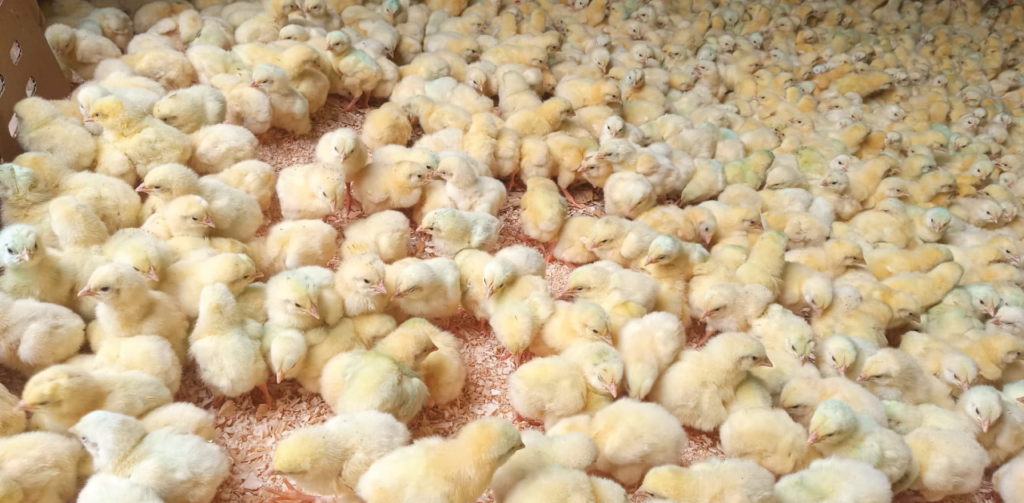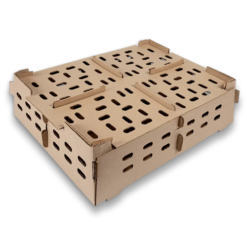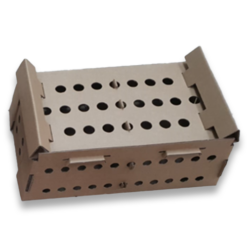Subtotal: R350,00
Chicken Farming
How to Start Raising Your Own Chickens
How to Start Raising Your Own Chickens: A Guide for Broiler Chicken Farmers and Homesteaders in Africa
Raising your own chickens can be a rewarding and profitable venture, whether you’re a micro or medium broiler chicken farmer or a homesteader in Africa. With the right knowledge and preparation, you can ensure your chickens are healthy and productive. In this guide, we’ll cover everything you need to know, from getting your first day-old chicks to setting up your broiler house, feeding schedules, and medicine.
Getting Started with Day-Old Chicks
The first step in raising your own chickens is to acquire day-old chicks. These young birds are a blank slate, ready to be nurtured into healthy broilers. Here’s what you need to know:
- Choosing a Reliable Supplier: It’s crucial to get your chicks from a reputable source to ensure they are healthy and disease-free. Look for suppliers with good reviews and a track record of providing strong, healthy chicks.
- Transporting Your Chicks: Proper transportation is vital to avoid stress and injury. Our BoxitUp Poultry Transport Boxes for day-old chick transportation are designed to provide a safe, comfortable journey for your chicks. These boxes are well-ventilated and spacious enough to keep the chicks calm and cool during transit.
- Inspecting Your Chicks: Upon arrival, inspect each chick for signs of health. They should be active, alert, and free from deformities or signs of illness. Separate any chicks that appear sick and consult a veterinarian if necessary.
Setting Up Your Broiler House
A well-prepared broiler house is essential for the health and growth of your chickens. Here’s how to set up an ideal environment:
- Location: Choose a location that is well-drained and away from predators. Ensure it’s easily accessible for feeding, cleaning, and other maintenance tasks.
- Housing Design: The broiler house should be spacious enough to allow the chicks to move around freely. Overcrowding can lead to stress and disease. Provide adequate ventilation to maintain a healthy airflow and temperature.
- Bedding: Use clean, dry bedding such as wood shavings or straw. Change the bedding regularly to keep the environment sanitary.
- Lighting: Proper lighting is crucial, especially in the early stages. Use heat lamps to maintain a warm temperature for the chicks, gradually reducing the heat as they grow.
- Security: Protect your chickens from predators by securing the broiler house with sturdy materials and ensuring there are no gaps or holes.
Feeding Schedule
A balanced diet is key to raising healthy, productive chickens. Follow this feeding schedule to ensure your broilers get the nutrition they need:
- Starter Feed: For the first 2-3 weeks, provide a high-protein starter feed. This helps the chicks grow strong and healthy.
- Grower Feed: After the starter phase, switch to grower feed, which has slightly less protein but more energy to support their growth.
- Finisher Feed: In the final weeks before slaughter, provide finisher feed to help the chickens gain the necessary weight and muscle mass.
- Supplements: Consider adding vitamins and minerals to their feed to boost their immune system and overall health.
- Feeding Frequency: Ensure there is always feed available for the chicks. Broilers should have constant access to food to maximize their growth potential.
Medicine and Health Care
Maintaining the health of your chickens is critical. Here are some tips for keeping your flock healthy:
- Vaccinations: Vaccinate your chicks against common diseases like Newcastle disease, Marek’s disease, and Infectious Bursal Disease (Gumboro). Consult with a local veterinarian for a vaccination schedule suitable for your area.
- Regular Check-Ups: Monitor your chickens daily for signs of illness. Early detection is key to preventing the spread of disease.
- Medication: Have a basic first aid kit and necessary medications on hand. Follow the veterinarian’s advice on administering antibiotics or other treatments.
- Cleanliness: Keep the broiler house clean and dry to prevent infections. Regularly disinfect feeders, drinkers, and equipment.
- Biosecurity: Implement biosecurity measures to prevent the introduction of diseases. Limit access to the broiler house and ensure visitors disinfect their shoes and hands before entering.
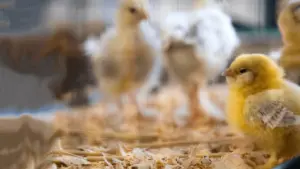
Daily Management Practices
Successful chicken farming involves consistent daily management practices. Here’s what you need to do every day:
- Feeding and Watering: Ensure your chickens have constant access to clean water and fresh feed. Check feeders and drinkers twice daily.
- Temperature Control: Monitor and adjust the temperature in the broiler house as needed. Chicks are particularly sensitive to temperature changes.
- Ventilation: Ensure there is adequate airflow in the broiler house to keep the air fresh and reduce the risk of respiratory issues.
- Observation: Spend time observing your chickens. Look for any changes in behavior, which could indicate health issues or stress.
- Record Keeping: Maintain detailed records of feeding, growth rates, health issues, and medication. This data will help you make informed decisions and track the progress of your flock.
Preparing for Market
When your broilers reach the desired weight and age, it’s time to prepare them for market. Here are the steps to follow:
- Final Health Check: Conduct a thorough health check to ensure all chickens are fit for sale. Remove any that are not up to standard.
- Processing: If you process the chickens yourself, ensure you follow proper hygiene and safety protocols. If you use a processing plant, choose one with a good reputation for cleanliness and efficiency.
- Packaging: Use appropriate packaging to keep the meat fresh and appealing to buyers. Label the packages clearly with relevant information such as weight, date of processing, and any certifications.
- Marketing: Develop a marketing strategy to reach your target audience. Utilize local markets, social media, and word-of-mouth to promote your chickens.
Conclusion
Raising your own chickens can be a fulfilling endeavor, offering both personal satisfaction and financial rewards. By following the steps outlined in this guide, you’ll be well on your way to becoming a successful broiler chicken farmer or homesteader in Africa. Remember, the key to success lies in proper preparation, consistent management, and a commitment to the health and well-being of your flock. Happy farming!
Our Chick Transport Boxes
Sale!
Chick Transport Boxes
Price range: R560,00 through R1400,00
This product has multiple variants. The options may be chosen on the product page Sale!
Chick Transport Boxes
Price range: R410,00 through R1025,00
This product has multiple variants. The options may be chosen on the product page Sale!
Chick Transport Boxes
Original price was: R425,00.R350,00Current price is: R350,00.

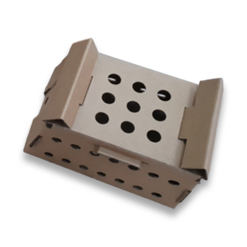 CHICK BOX PLAIN KRAFT 25 (Pack of 20)
CHICK BOX PLAIN KRAFT 25 (Pack of 20) 